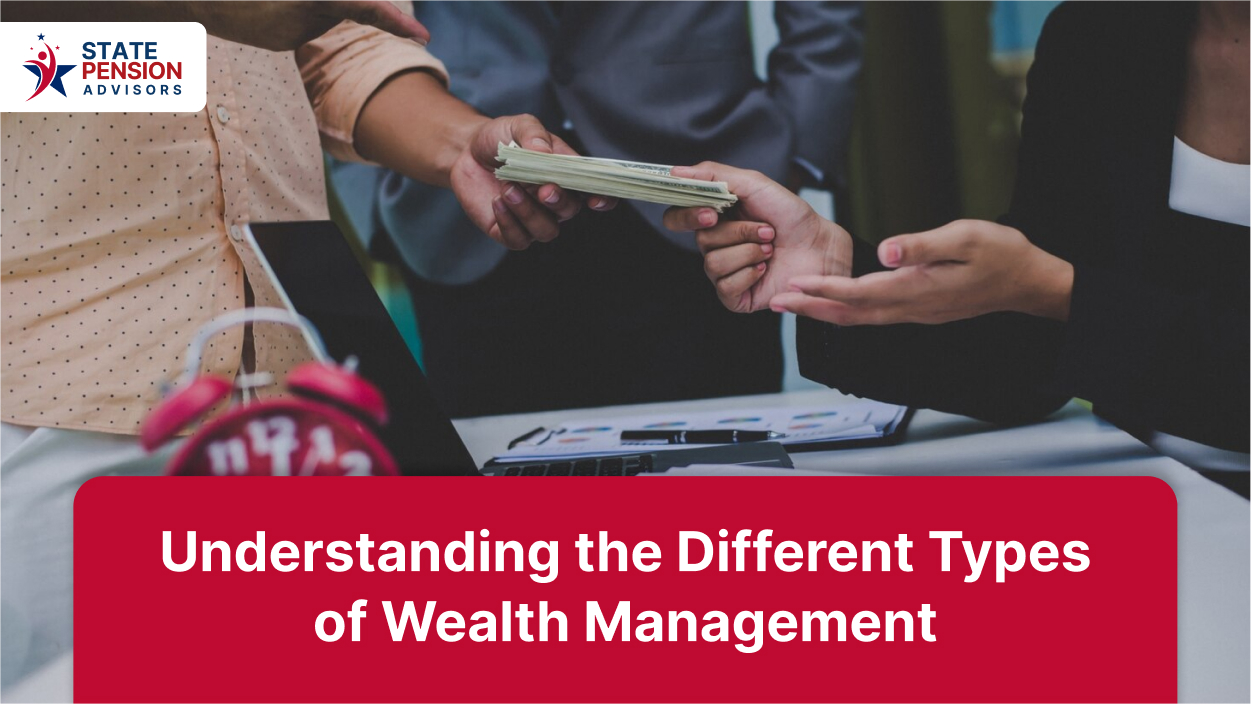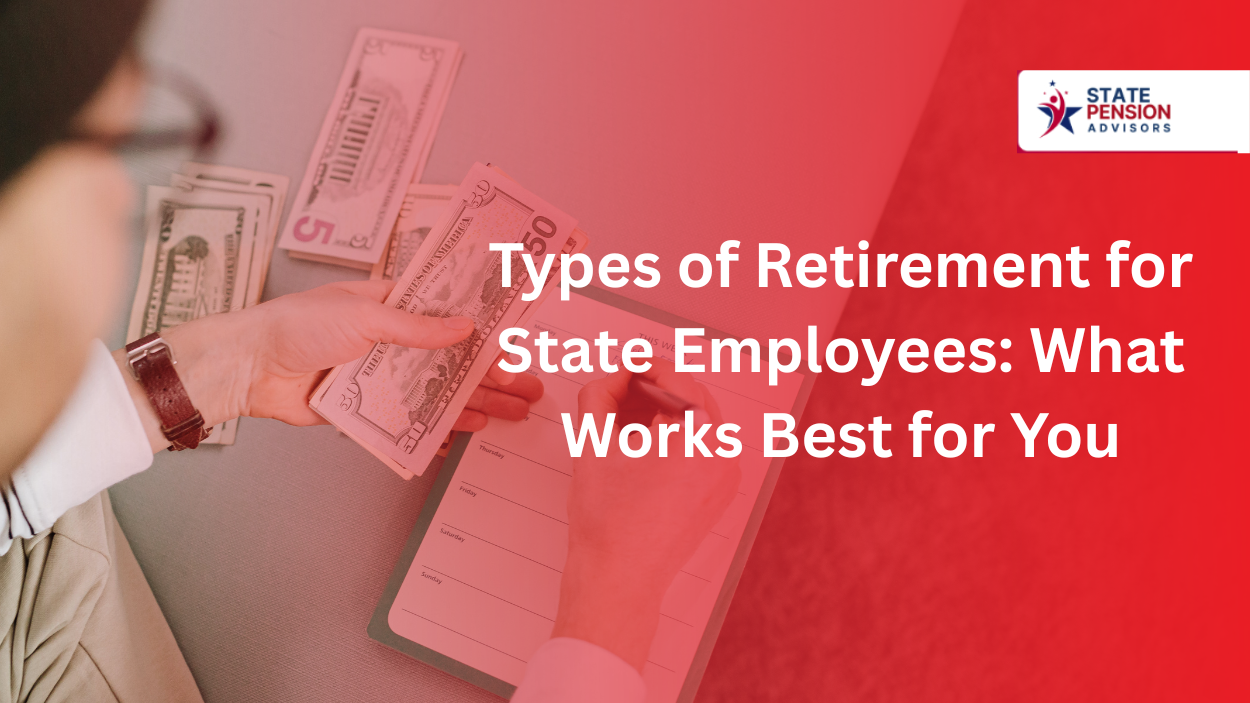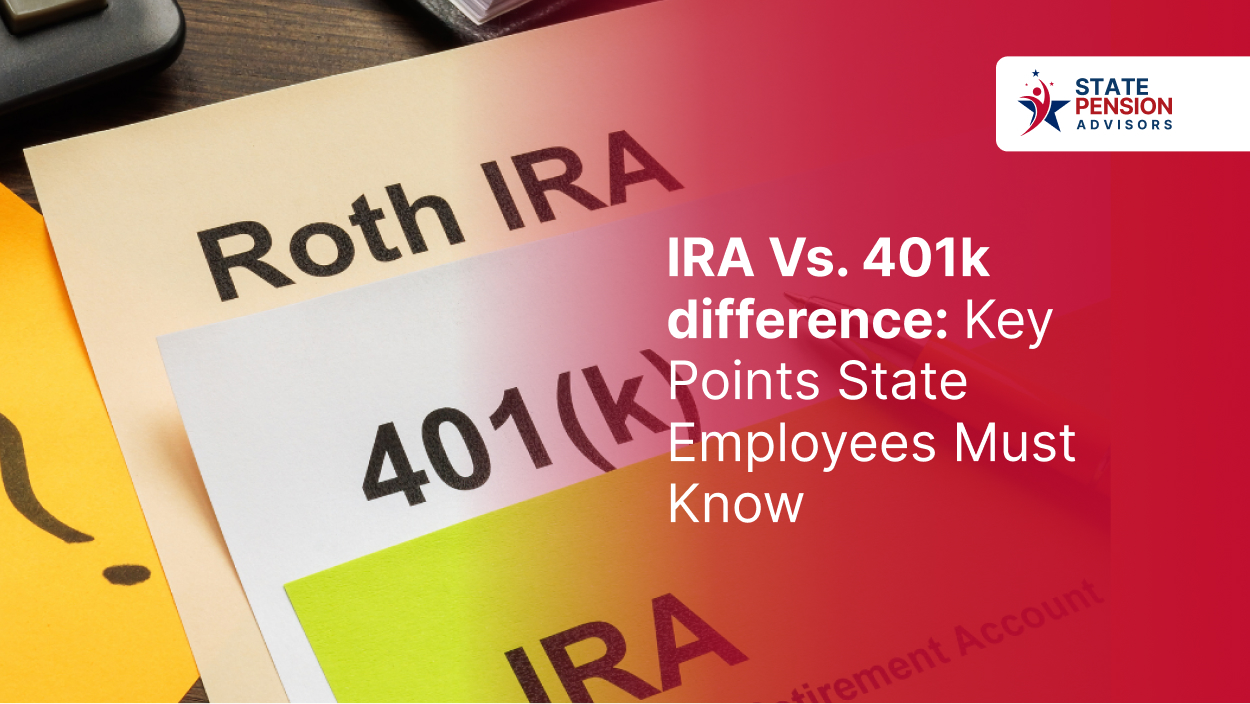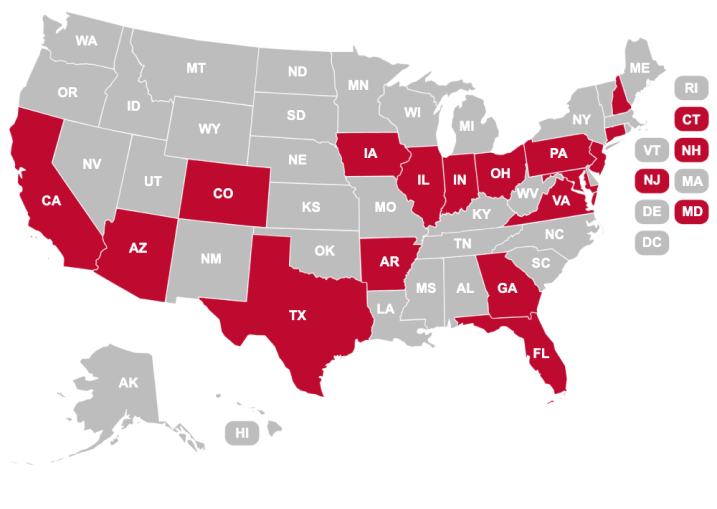457b vs 401k Plans – Which One is Better?

h2,h3
A thorough 457b vs 401k comparison is crucial before making any decision. Why so? Because it gives you a way forward toward choosing the right retirement plan. Moreover, having a well-rounded plan is necessary. After all, it provides you with the funds you need to build the life you want to lead. In other words, your retirement plan is your ticket to the destination of your dream retirement. Hence, choosing the right one between 457b vs 401k is very important. Don’t know how to get started with the comparison. Don’t worry; I’ve got you covered. Here is all you need to know about both the retirement plan. From contribution to distribution, find every info you need.
- Both 457b and 401k are tax-deferred employer-sponsored programs that help employees create a consistent retirement income.
- 457b plans are designed for the employees of government and non-profit organizations while a 401k caters to the employees of the private sector, for-profits, and non-profit organizations.
- Both plans offer catch-up provisions to participants over 50. If you have a 457b plan and are just 3 years away from your retirement, you can contribute an extra $3000 too.
- For 401k plans, employer matching is a common practice. However, it’s quite rare when it comes to 457(b) plans.
457b vs 401k – Everything You Need to Know
You should know that both 457b and 401k are employer-sponsored retirement plans. And both of these allow the participants to save up a specific amount of their annual salary for retirement. Besides, these plans – 457b vs 401k – are tax-deferred. This means you can grow your retirement funds without worrying about tax deductions.
“Employer-sponsored retirement programs can be a significant source of post-retirement income.” – Investor.gov
Amazing, right? What’s more amazing is that they are your key to financial security in your life after retirement. Therefore, having a thorough know-how about both of them before you sign up for anyone is important. Here is your detailed guide on both these plans so you can decide which one is right for you – easily so!
What is a 457b Plan?
To begin your 457b vs 401k quest, you should know about what both of these plans offer. Let’s begin with 457b. It is one of the 457 retirement arrangements that allow employees to save-up for their future. A 457b plan is a tax-benefitted plan that lets you make pre-taxed contributions. Pre-taxed means employees get to save more and lose less. It's an IRS-sanctioned plan that is designed to help employees create a consistent retirement income for themselves. Besides the tax deductions take place on every withdrawal you make.
“The major advantage of participating in a 457b plan is that the contributions and the earnings on the retirement money are tax-deferred. The tax is due on each withdrawal after retirement.” – Internal Revenue Service
The best part: it gives you a wide range of investment options to choose from, including mutual funds, annuities, and more. But do you qualify for this plan? In the next step of our 457b vs 401k comparison, we will discuss who qualifies for this retirement planning program.
Who is Eligible for a 457b Plan?
You should know that 457b retirement plans are usually offered to state and government employees as well as to workers of non-profit organizations. If you tick-off any of the ones in the list below, you can qualify for a 457b:
- Civil servants
- Police personnel
- Municipal employees
- Employees of Government agencies
- Employees of public service organizations
- Employees of non-profit organizations
Besides, this list can also include some teachers, firefighters, nurses, doctors, etc – employees who work in public service. Moreover, if you are a top-level executive, you can also consider a 457f retirement plan. It is a supplement plan of 457b. Also known as SERP (Supplemental Executive Retirement Plan), it allows the participants to contribute more than usual.
What is a 401k Plan?
We are proceeding to the next phase of our 457b vs 401k comparison: we will talk about 401(k) retirement plans. It’s also an employer-sponsored plan that helps you accumulate funds for a financially stable retirement. Besides, this defined contribution plan also gives employers the option of contributing the same amount as employees (employer matching). Moreover, this plan leads to automatic deductions from your annual salary. You should know that the main purpose for designing this retirement plan was to encourage Americans to save up for retirement. After all, you can’t leave a peaceful retirement without money.
A 401(k) is a retirement savings plan sponsored by an employer. It allows employees to save and invest a portion of their paycheck. – Internal Revenue Service
With a 401k plan, you are surely sorted for your retirement. After all, it gives you the security of a consistent retirement income. To make the best out of your plan, it is wise that you consult a 401k financial advisor. Because they know how to navigate the complexities of these plans seamlessly.
Eligibility Criteria of a 401k Plan
Do you qualify to participate in a 401k plan? Or do you not? Well, you should know that you have to fit into certain criteria to be eligible for a 401k plan. But once, you do, you are all set to lose less and earn more. Anyhow, these are the organizations offering their employees with 401(k)s:
- Private organizations
- For-profit organizations
- Non-profit organizations
As aforementioned, there is a criterion you have to pass before signing up for a 401k. According to the Internal Revenue Service, you have to fall under the following points to qualify for this retirement program:
- Have Reached 21 years or Older
- Worked for at least 1 year for the employer
- Members of certain unions can’t qualify for a 401k
- Non-resident employees can’t qualify for a 401k
- Part-time employees qualify for this plan under specific conditions.
When you can begin with your retirement program depends on your organization. Besides, if you fulfill the above terms and conditions, you are ready to utilize the benefits of this program. Moreover, always seek guidance from retirement plan consultants to make the most of your arrangement. With them, you can easily understand the limitations, complications and advantages of this plan.
457b vs 401k – What are the Similarities?
Do you know that both 401k and 457b retirement programs resemble each other in several aspects. While some similarities are pretty evident, some are not so apparent. For instance, you know that both are employer-sponsored plans. But else do you know? Well, don’t worry if you don’t. After all, I’ve got your back. Here are some of the ways in which both of these retirement arrangements resemble each other:
• Both are Tax-Deferred
As aforementioned, these retirement programs – 457b vs 401k – are tax-deferred. This means that these plans let their participants save up for retirement without having them worry about taxes. Besides, when you don’t have taxes to pay you can gather more funds for your future, and you save more. After all, you don’t have to lose a big amount of money to taxes. Additionally, both 401k and 457b allow you to contribute before the deduction of taxes. As a result, your taxable income reduces each year and you have to pay less taxes each year. Still, your retirement income is subject to taxes; deductions happen on withdrawals.
• Similar Contribution Limits
Another important thing you should know is that both 457b vs 401k have somewhat similar contribution limits. Yes, that’s true! The main contribution regulations for both of these plans are quite the same. Hence, you can say they offer a similar set of benefits in terms of contributions. Here are the limitations set by IRS:
- For 2024, the annual employee contribution for both plans is $23000
- Those who are 50 years and above are allowed to make catch-up contributions
- The catch-up contributions for each year can be up to $7500
- The total contribution limit, including the catch-up provision totals $76500 per year
You may wonder: with so much similarities, how to know which one is better? Well, to make the right decision at the right time, it’s always a good idea to seek help from a professional advisor. Whether a 401k vs 457b vs 403b, they can walk you through the basics and complications of every plan ever.
• Early Withdrawal Penalty
Both retirement plans – 457 vs 401k – offer a consistent stream of money for retirement. Yes, that money is for your retirement. However, emergencies can arise at any point of your life. And you may have to withdraw some money from your retirement account. Well, if this is the case, you will have to pay a penalty of 10% on the withdrawal. In other words, you can take out money from your retirement account before it's time but you’ll have to pay a fine. Furthermore, you can make penalty-free withdrawals after the age of 59 1/2.
“Although there is a 10% penalty on early withdrawals, certain exemptions can exempt participants from it.” – Internal Revenue Service
• Conditions on RMDs
Both 457b vs 401k have to follow the Required Minimum Distribution (RMD) rule. According to it, you have to start withdrawing your retirement income on a regular basis after you turn 73. The amount you have to withdraw – required minimum distribution – is based on the following factors:
- Your account balance
- Life expectancy
Moreover, if you fail to take out your distribution, you will be fined heavily. You may be wondering why. Well, because there is fine, individuals responsibly make regular withdrawals. As a result, the IRS is able to timely and actively collect taxes subjected to the funds in retirement accounts. Hence, regular minimum withdrawals are necessary to manage your retirement income and to keep penalties at bay.
457b vs 401k – What are the Differences?
We now know how similar 457b and 401k are to each other. But not everything about them is the same. In fact, they differ in a lot of ways too. Yes, it's true that these plans have similar terms and conditions for contribution limits, RMDs, and early withdrawals. But you should also know about their differences, including:
• Eligibility Criteria
This is the most apparent difference between both plans – 457b vs 401k. Not all employees can qualify for both. After all, 457b plans are usually designed and offered to employees of non-profit and government organizations. These can be police personnel, firefighters, civil servants, or even municipal employees. On the other hand, 401k plans are suitable for public sector, non-profit, and for-profit organizations. Also, you should know that this plan requires you to comply with a specific criteria. For instance, you have to be 21 years or older to begin contributing to a 401k.
• Catch-Up Provisions
With both of these employer-sponsored retirement arrangements, employees who are 50 or older can benefit from catch-up contributions. You should know by now that the catch-up limit for 2024 is $7500. And here’s the good news: 457b plan allows special catch-up contributions for their participants under certain conditions. If you are 3 years away from your retirement, you can contribute an extra amount of $3000. Keep in mind that this amount is other than your annual contribution and regular catch-ups. However, only people with a 457b can avail this of. Because 401k doesn’t offer any such special contributions.
• Employer Matching
Are you aware of the concept of employer matching? It refers to when your employer matches the contribution amount of the employee. With this move, participants can maximize their retirement savings. The key is to utilize the right way. This means, if your employer is going for matching contributions, make sure you contribute as much as you can. As a result, your employer will contribute more too. So, you’ll have more money saved up. Moreover, employer matching is quite common in 401k plans but not in 457(b)s. In fact, this practice is very rare in the case of 457 retirement arrangements.
“Catch-up contributions are additional retirement contributions that allow individuals over 50 to increase their retirement savings.” – Investopedia
401k vs 457b comparison chart
We have discussed both retirement plans. But really, what is the difference between 457b and 401k? This is an important question because knowing about 457b vs 403b vs 401k is important before you choose one. You can find a detailed description of the similarities and differences between these plans above. Or you can have a look at our comprehensive 457b vs 401k comparison chart for a skimmed version:
Quick Question: Can You Contribute to Both 401k and 457b?
Yes, you can! The IRS allows individuals to contribute both plans at the same time. In fact, contributing to both plans at once can maximize your annual retirement savings and tax benefits too. Plus, this may also decrease your taxable income so, you may have to pay less taxes for the year. However, if you sign up for both plans, you have to abide by the rules that apply to both 401k and 457b.
457b vs 401k – Which is Better?
Now that you know about both retirement plan, you can comprehend which one for you is better. Plus, keep in mind that the decision you make must be based on your future goals, needs, retirement timeline and employer. We’ve thoroughly covered the limits, penalties, benefits, and more of these plans so you can make the right choice. Consider every aspect. Should you choose a 457b? because of the special catch-up provision. Or a 401k is better? Because of the employer-matching practice. Well, this decision can be difficult for you to make. So, it is always better to consult a retirement plan consultant. After all, they are skilled enough to save you from picking the wrong account.
Take the Right Step Toward Your Retirement Goals!
No matter which retirement program you participate in, 401k or 457b, it’s your key to a peaceful retirement life. The most important thing is that you sign up for one. After all, they provide you with a consistent retirement income. No doubt, your golden years begin when you stop working officially. And to make the most out of these years, you must have adequate funds. So, don’t delay; invest in a retirement plan now. Check with your employer and see what plans they are offering.










.png)
.png)










